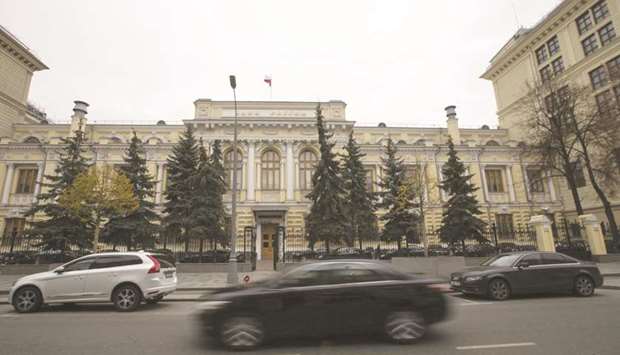Standard & Poor’s, Fitch and Moody’s have all withdrawn from Russian domestic ratings, refusing to comply with legislation drawn up in 2014 when they downgraded Russia after the annexation of Crimea.
Russia says the legislation is designed to prevent rating agencies from withdrawing local ratings under external political pressure, while the agencies see it as a restriction on their work.
The withdrawal of the big three will leave ACRA, a new Kremlin-backed ratings agency promoted by the central bank, and Expert RA, a veteran of Russia’s domestic rating industry, as the only agencies able to assess Russian debt.
Investors, who must rely on the ratings of ACRA and Expert RA from July 14, say they are struggling to believe domestically produced ratings will be of the same standard as international ones.
“The central bank organised a rating revolution.
If funds won’t be able to keep bonds due to rating requirements, they will sell these bonds,” the head of a Moscow-based fund manager said.
He added that not all issuers in Russia’s 1tn rouble ($17bn) corporate bond market had managed to get an ACRA rating in time for the July 14 deadline, leaving them without any credit rating.
Banks are concerned about the rating overhaul as it affects their ability to borrow from the central bank.
Credit ratings are also relied on by investors to decide whether to hold a company’s bonds or enter into other transactions with them.
Some investors only deal with firms that carry a credit rating above a certain level, so if a company carries no rating or is judged to be rated by unreliable agencies it can lose access to potential investment funds.
Russian pension funds are likely to find it particularly difficult to invest in bonds if the new rating arrangements stay as they are, market sources said.
When the big three international agencies withdrew their domestic ratings, the central bank and the finance ministry encouraged Russian borrowers to get ACRA ratings.
Rival agency Expert, set up two decades ago, complained that ACRA was benefiting from favouritism. “Imagine there is only one agency on the ratings market. Clients have nowhere to go,” Sergei Tishchenko, head of Expert, told Reuters.
He said that without proper competition, ratings could be artificially low as the monopoly agency would want to protect its reputation by being ultra-cautious.
ACRA’s head, Ekaterina Trofimova, a former director at S&P, acknowledges that only ACRA had “full regulatory recognition” but said the management of other agencies should be blamed for not complying with new central bank rules. As of mid-July, ACRA had 40 ratings on its books, aiming at bringing that to more than 100 by the end of the year.
Expert has 415 active ratings but has rated only four banks from ACRA’s list, making it difficult to compare estimates by the two rivals.
Expert has many more ratings for smaller Russian firms.
ACRA has tried to win a reputation for a conservative approach, making it unpopular in some business circles.
Andrey Kostin, who heads Russia’s second-largest bank, VTB, attacked ACRA’s methodology earlier this year.
“They rated us even lower than Western agencies, the ones we complained about due to their politicised approach,” Kostin was quoted as saying by Russian media organisation RBC.
VTB withdrew the ratings it received from Fitch, calling the international agency “unprofessional”.ACRA has not revealed the rating it assigned to VTB, one of its shareholders, but Expert assigned it the highest possible rating, “ruAAA”, putting it above state lender Gazprombank, where ACRA head Trofimova worked before joining ACRA.
ACRA rates Gazprombank “AA(RU)”, two notches below its highest grade.
This month, ACRA gave Otkritie, Russia’s largest private bank, a BBB-rating, preventing it from raising some funds.
Trofimova rejected allegations that ACRA enjoyed state favouritism, saying competition should exist for quality ratings and this should not take the form of what is called a “rating shopping”, when competitors are fighting for a client.

